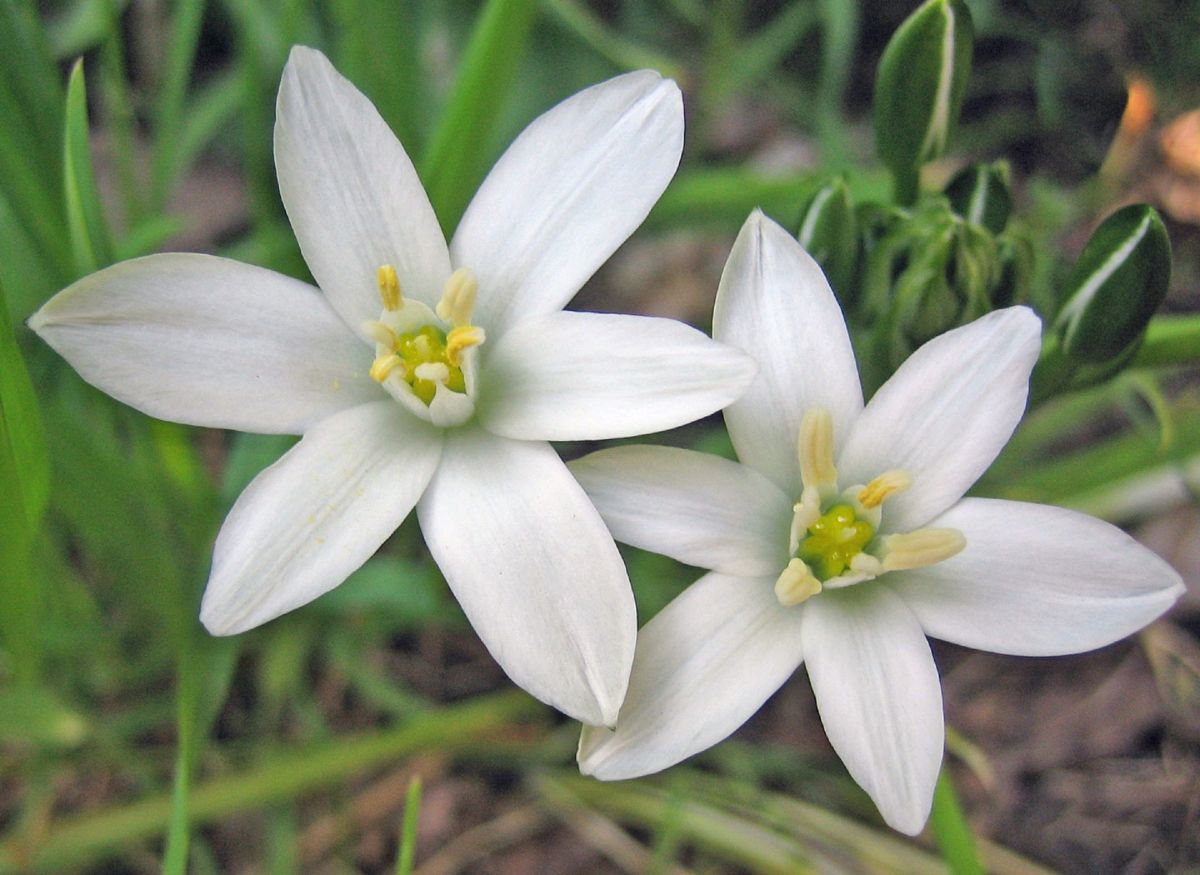Star of Bethlehem (0rnithogalium umbellatum) is a spring-blooming perennial that grows in clumps with long narrow, grassy looking leaves. In the late spring in zones 4-9 in locations with some sun, it produces pretty, little white flowers.
Its common names are bird's milk, eleven o'clock lady, nap at noon, grass lily, and summer snowflake. It spreads quickly and is considered invasive in some areas. So, it is best to check to see if there are any local restrictions before you plant its little bulbs in the fall.
It is native to Europe, Africa, and the Mediterranean, and since it is toxic, deer and rabbits leave it alone. I have it in my zone 6 garden and it is not invasive, and it does not have any pests or diseases. If you do not want it to spread just deadhead the faded flowers before they drop their seeds by holding bunches together and clipping them.
This plant belongs to the lily family and likes well-drained soil, but the bulbs as well as the foliage contain alkaloids that can poison livestock.
The Star of Bethlehem name probably dates from the Crusades. The bulbs were brought home as souvenirs when ancient people made pilgrimages to the Holy Land. So, this sweet little flower has an impressive history.
This is Moya Andrews, and today we focused on Star of Bethlehem.










